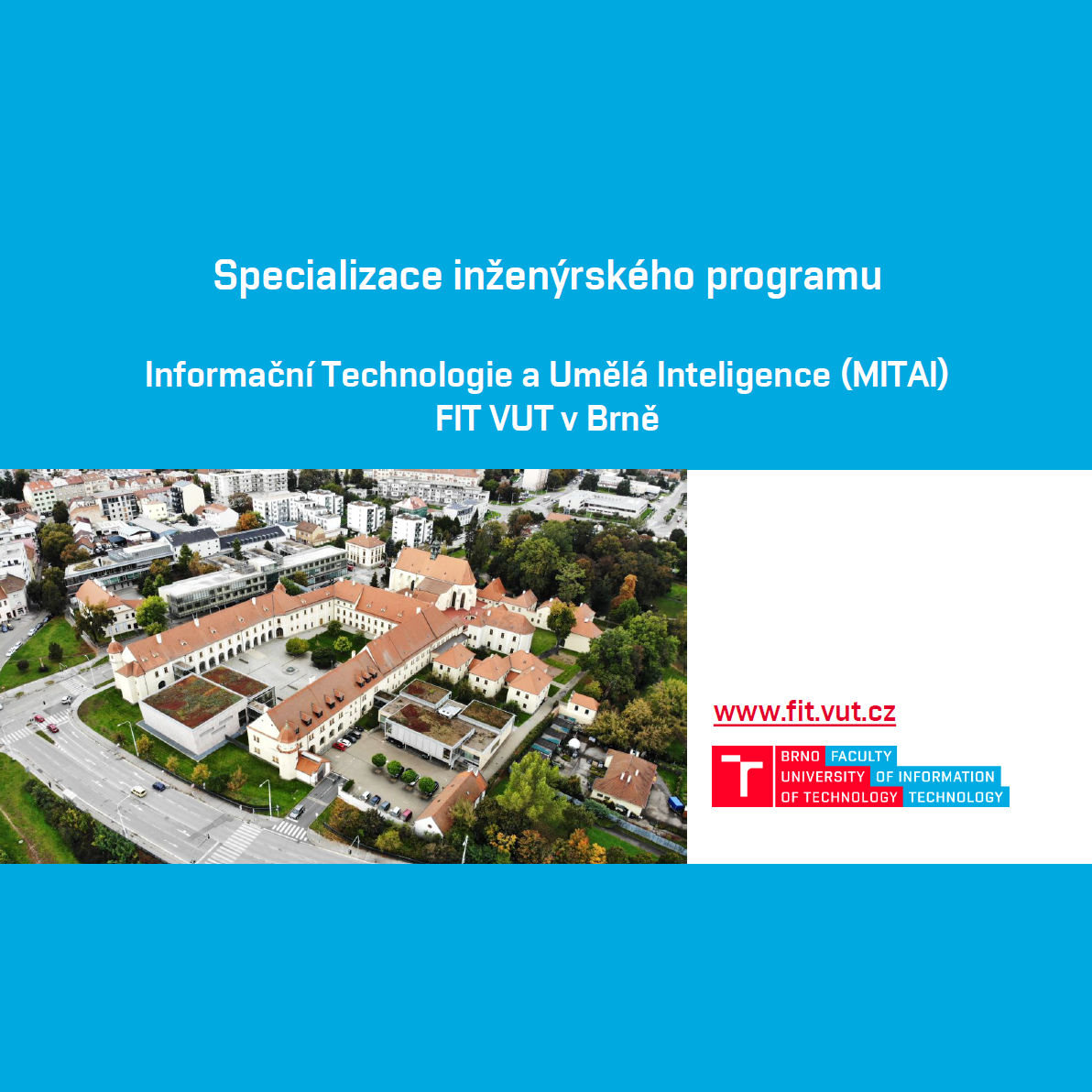Specializace pokrývá strojové učení od teoretických základů až po aplikace v různých oborech IT. Na rozdíl od častého přístupu "najdu si na Internetu nějaké černé krabičky, propojím je a ono to bude něco dělat", chceme, aby studenti našeho oboru skutečně chápali, co dělají. Klademe proto důraz na silný teoretický základ (od bayesovské statistiky až po lineární algebru), a práci se skutečnými úlohami strojového učení a daty. V kursech této specializace nezačneme hned těmi nejmodernějšími a nejsložitějšími architekturami neuronových sítí, ale půjdeme postupně od definice kriteriálních funkcí, výpočtu gradientů až po vyhodnocování úspěšnosti systémů strojového učení. Se znalostmi získanými v této specializaci můžete čelit největším výzvám současného světa IT - autonomním autům, hlasovým chatbotům, počítačovému vidění pro robotiku, a dalším - u každé budete potřebovat určitou specifickou doménovou znalost, ale tu můžete získat z volitelných kursů nebo na místě. Specializaci garantuje a klíčové kursy SUI, SUR a BAYa učí Doc. Lukáš Burget, vědecký ředitel skupiny Speech@FIT a druhý nejcitovanější český odborník v oblasti informačních technologií. Specializace úzce souvisí s výzkumnými projekty řešenými na FIT, a se spoluprací s firmami z Česka i zahraničí (mj. Google, Honeywell, Raytheon, NTT, Ericsson, VR Group či Phonexia), na fakultě tedy najdete dostatek lidí s "hands on" zkušeností pro vedení projektů a diplomových prací. Disponujeme také řadou kontaktů na špičkové zahraniční laboratoře a firmy, takže pro šikovné studenty není problém problém zařídit diplomovou práci v rámci Erasmus/Socrates či průmyslovou stáž.
The common basis of the programme
The common core of the program consists of courses that will give you the knowledge important for all IT engineers:
- Computation Systems Architectures will teach you how to think about how your code will run on modern computing platforms, how to think about programming in a way that makes the most efficient use of resources, i.e., that your application makes the best use of the power of modern platforms, makes efficient use of system memory resources, and is also efficient in terms of energy consumed.
- Functional and Logic Programming will teach you that although classical imperative programming is a very widely used paradigm and is very close to machine-level implementation, there are other approaches that will give you a new perspective on some key problems and help you get novel and often more efficient solutions to them.
- Modern Trends in Informatics (in English) you need to know to see where the field is going and what to expect in practice in a few years.
- Parallel and Distributed Algorithms is a course that will show you the patterns, limits, and pitfalls of parallel and distributed algorithmic solutions and the associated synchronization mechanisms, without which you will hardly succeed in solving many of the more complex problems.
- Statistics and probability is the right hand of every engineer to process numerical results of experiments or data obtained while running your application, analyze them and learn from them to make further decisions is almost his daily bread.
- Theoretical Computer Science shows the limits of computer science capabilities through formal languages and mathematical models of computation. This is the only way to understand whether your problem is even solvable and, if so, with what resources and means to prove it.
- Data Storage and Preparation, especially big data, and extracting knowledge from it is a valuable art to any computer scientist. It is a key aspect that strongly influences the effectiveness of many solutions and applications.
- Artificial Intelligence and Machine Learning is a course where you will learn how to teach computers to understand our world and make them solve problems that are easy for humans but difficult for an algorithmic machine to handle.
They will pass on all their knowledge and hold you in difficult moments
What are we talking about?
-
The technology developed at FIT BUT within the TENACITy (Travel Intelligence Against Crime and Terrorism) project helps security forces in the European Union to securely transfer information about passengers travelling through international airports. …
-
FIT team helps build a unique dialect map
A team from the Faculty of Information Technology at the BUT, led by Martin Karafiát, is involved in a unique dialect mapping project. In cooperation with the Academy of Sciences of the Czech Republic and Palacký University in Olomouc, they are creating a website where you can select a region of the Czech Republic and listen to the dialects characteristic of a given place. …
Come to FIT!
Other Master
Specializations
-
Application Development
-
Bioinformatics and Biocomputing
-
Computer Graphics and Interaction
-
Computer Networks
-
Computer Vision
-
Cyberphysical Systems
-
Cybersecurity
-
Embedded Systems
-
High Performance Computing
-
Information Systems and Databases
-
Intelligent Devices
-
Intelligent Systems
-
Machine Learning
-
Mathematical Methods
-
Software Engineering
-
Software Verification and Testing
-
Sound, Speech and Natural Language Processing
